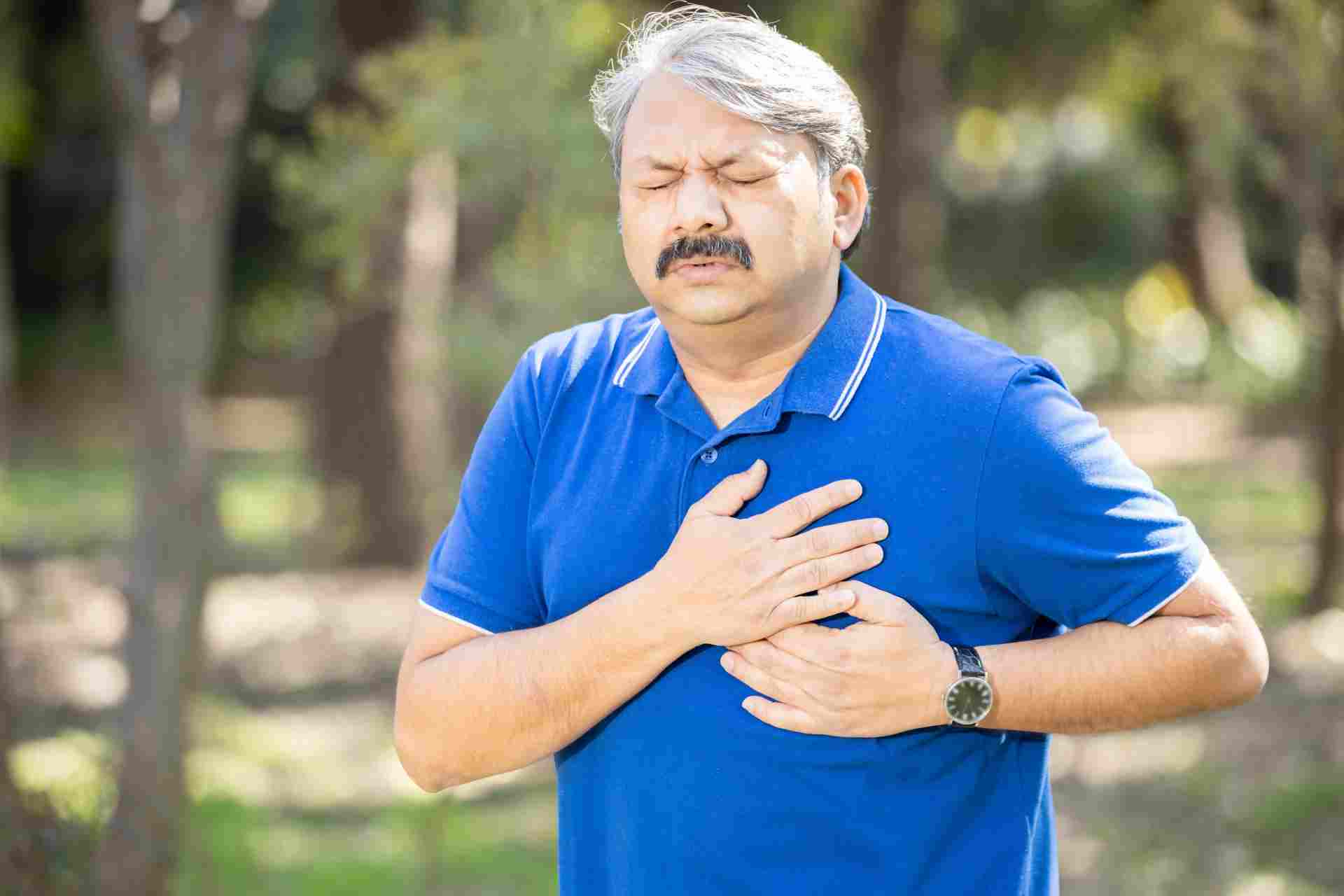 Experiencing a car accident can really shake you up, not just physically but emotionally, too. Sometimes, the effects aren’t immediately obvious. You might feel okay at first but then suddenly develop symptoms like chest pain days or even weeks later. It’s important to be aware of the possibility of delayed chest pain after a car accident so that you can get the help you need quickly. Here’s what you need to know about delayed symptoms after a car accident, including chest pain.
Experiencing a car accident can really shake you up, not just physically but emotionally, too. Sometimes, the effects aren’t immediately obvious. You might feel okay at first but then suddenly develop symptoms like chest pain days or even weeks later. It’s important to be aware of the possibility of delayed chest pain after a car accident so that you can get the help you need quickly. Here’s what you need to know about delayed symptoms after a car accident, including chest pain.
Recognizing Delayed Symptoms After a Car Accident
It is quite common to experience a surge of adrenaline that can mask pain and other symptoms. As your body begins to recover from this shock, you can develop delayed symptoms, including chest pain. It’s important to pay attention to any changes in your physical well-being, even if they emerge days or weeks later. This pain might show up as a dull ache, sharp stabbing sensation, or persistent soreness in the chest area. Other symptoms can accompany chest pain, including difficulty breathing deeply, tenderness or swelling around the chest, stiffness in the neck or shoulders, and discomfort when moving your upper body. Additionally, you may notice bruising, redness, or visible signs of injury on your chest or torso. It’s crucial to pay attention to these symptoms and seek medical attention if they persist or worsen over time.
What to Do If You Experience Delayed Chest Pain After a Car Accident
Check out these 7 steps to take if you experience delayed chest pain after a car accident.
Seek Medical Attention
Always take any chest pain seriously and promptly seek medical attention. Contact your healthcare provider or visit the nearest emergency room for assessment.
Provide Details
When seeking medical help, provide details about the car accident, including the date, time, and severity of the incident. Mention any symptoms you’re experiencing, including the onset and nature of the chest pain.
Follow Medical Advice
Follow the guidance and recommendations of your car accident doctor. This may include prescribed medications, follow-up appointments, physical therapy, or other treatment options, depending on your diagnosis.
Monitor Your Symptoms
Pay attention to any changes in symptoms following medical evaluation. If your chest pain persists, worsens, or is accompanied by new symptoms, inform your doctor right away.
Avoid Strenuous Activities
While recovering from delayed chest pain after a car accident, avoid strenuous activities that could exacerbate the symptoms or delay healing.
Document Everything
Keep a record of medical appointments, treatments received, and any communication with healthcare providers regarding your condition. This documentation can be valuable for insurance claims or legal purposes related to the car accident.
Stay Informed
Educate yourself about the potential causes and treatments for delayed chest pain after a car accident. Being informed empowers you to make the best decisions for your health and recovery.
Chest Pain 2 Weeks After Car Accident: What to Look For
Chest pain following a car accident can indicate various underlying issues, ranging from minor injuries to severe conditions. While some chest pain may be immediate and obvious, such as those caused by seatbelt injuries, others may develop over time. Common causes of delayed chest pain after a car accident can include:
Whiplash
The force of a collision can cause the head and neck to snap back and forth, resulting in whiplash. While whiplash is typically associated with neck pain, it can also lead to chest discomfort due to muscle strain or nerve irritation in the upper body.
Soft Tissue Injuries
Damage to muscles, ligaments, or tendons in the chest area may not be immediately obvious but can cause pain days or weeks later as inflammation and swelling set in.
Internal Injuries
Trauma from a car accident can cause internal injuries, such as bruised or fractured ribs, organ damage, or internal bleeding. These injuries may not show symptoms immediately but can lead to chest pain as they worsen.
Diagnosing Chest Pain After a Car Accident
 To determine the cause of delayed chest pain after a car accident, your Snellville car accident doctor may run various diagnostic tests, including imaging studies and an electrocardiogram. A thorough physical examination can help identify visible signs of injury and assess the range of motion in the chest and neck. Additionally, diagnostic imaging tools like X-rays, CT scans, or MRI scans may be ordered to evaluate the internal structures of the chest, including the ribs, lungs, and surrounding tissues. An ECG can assess heart function and rule out cardiac issues as a cause of chest pain.
To determine the cause of delayed chest pain after a car accident, your Snellville car accident doctor may run various diagnostic tests, including imaging studies and an electrocardiogram. A thorough physical examination can help identify visible signs of injury and assess the range of motion in the chest and neck. Additionally, diagnostic imaging tools like X-rays, CT scans, or MRI scans may be ordered to evaluate the internal structures of the chest, including the ribs, lungs, and surrounding tissues. An ECG can assess heart function and rule out cardiac issues as a cause of chest pain.
Treatment Options for Delayed Chest Pain After a Car Accident
Treatment for delayed chest pain after a car accident will include various approaches tailored to your specific condition and needs. Seeking the expertise of a car accident injury doctor can offer numerous benefits, including specialized knowledge in diagnosing and treating injuries commonly associated with motor vehicle accidents. Here are examples of some treatment options you can expect:
Comprehensive Evaluation
A car accident injury doctor can conduct a thorough evaluation to accurately diagnose the underlying cause of your delayed chest pain.
Noninvasive Treatment Modalities
Before considering surgical interventions, noninvasive treatment options are often explored to manage delayed chest pain effectively. These may include pain management, physical therapy, and chiropractic care.
Pain Management
Over-the-counter, or prescription pain relievers, such as nonsteroidal anti-inflammatory drugs (NSAIDs) or muscle relaxants, can help alleviate discomfort associated with soft tissue injuries or inflammation. These medications can provide temporary relief while allowing the body to heal.
Physical Therapy
Rehabilitation exercises, stretches, and manual therapy techniques administered by a physical therapist can aid in the recovery of muscle and soft tissue injuries. Targeted exercises with physical therapy can improve range of motion, strength, and flexibility, reducing pain and enhancing functional mobility.
Chiropractic Care
Chiropractic adjustments and spinal manipulations performed by your Snellville chiropractor can help realign the spine, relieve pressure on nerves, and alleviate chest pain caused by musculoskeletal misalignments.
Surgical Interventions
In cases where conservative measures fail to alleviate symptoms or when there are indications of severe underlying issues such as fractures or organ damage, surgical interventions may be necessary. Surgery may be needed to repair damaged tissues, stabilize fractures, or address any structural abnormalities contributing to chest pain.
Choose AICA Snellville for Car Accident Care
Overall, the goal of treatment for delayed chest pain after a car accident is to alleviate symptoms, including chest pain, promote healing, and restore healthy functioning. By collaborating with a multidisciplinary team of car accident doctors, you can receive comprehensive care tailored to your unique needs. At AICA Orthopedics in Snellville, our team of car accident doctors can triage delayed chest pain after a car accident. By understanding the potential causes and seeking timely medical attention, you can get a proper diagnosis and treatment for a smoother recovery process and better overall health.
